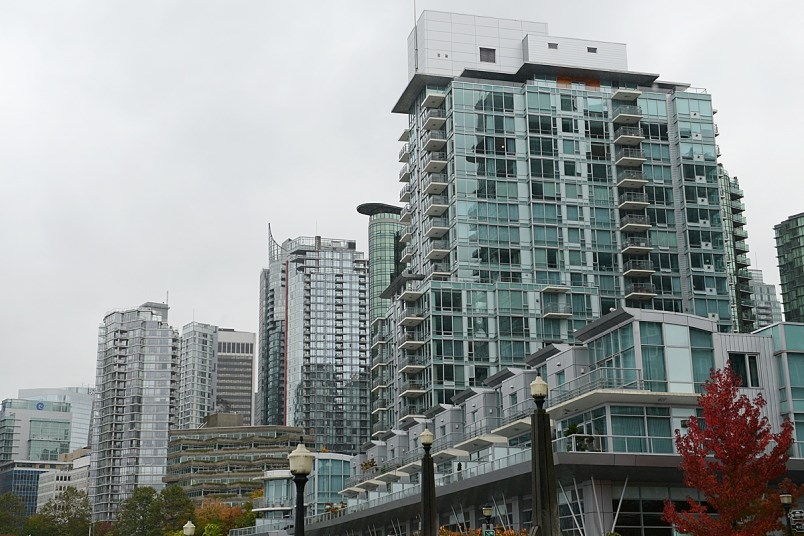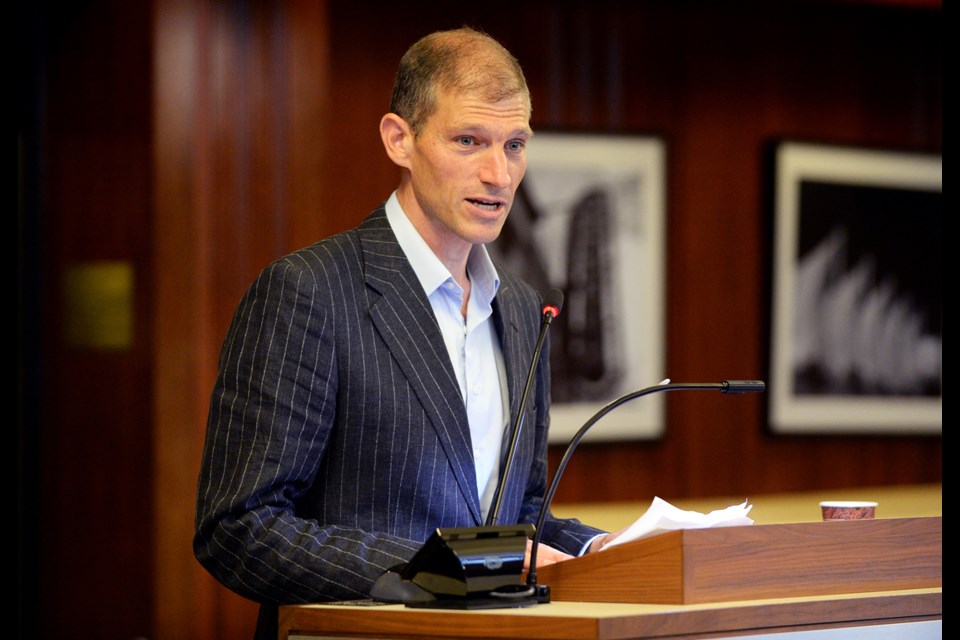City council heard Wednesday that it won’t know until December whether the city’s $7.4-million empty homes tax program is achieving its intended goal of opening up more homes for rent.
That’s when the Canada Mortgage and Housing Corporation will release data to show whether the city’s current below-one per cent vacancy rate has climbed any higher.
“The vacancy rate is really the key measure,” said Patrice Impey, the city’s general manager of finance, after Wednesday’s meeting.
Even then, city staff and a real estate expert warned council that fluctuation in the real estate market, the foreign buyers’ tax, new short-term rental regulations and changes to the economy have to be considered in measuring the success or failure of the tax.
Council approved the one per cent tax in November 2016 in an effort to pressure landlords to rent out their properties in a city with an estimated 25,000 empty or under-utilized homes.
If a landlord declines to rent a property, the one per cent tax would mean a house assessed at $1 million will be levied with a $10,000 bill, on top of a base property tax bill of $3,165 for a total cost of $13,165.
The city set July 1 as the date for property owners potentially affected by the tax to have tenants in place for the next six months, or be prepared to pay the tax next year. The tax applies primarily to landlords of second homes, or non-principal residences, who leave properties unoccupied for six full months of the year, or more.
Council remained firm Wednesday that it will not allow exemptions from what Mayor Gregor Robertson called “luxury homeowners.” Robertson issued a statement following the council meeting in which landlords complained about the tax.
“In a housing crisis, it’s unacceptable for so much housing in Vancouver to be treated as a commodity — housing is for homes first, and as investments second,” the mayor said.

Gerald Sieben of the Coal Harbour Residents’ Association argued many landlords of second homes in the downtown waterfront neighbourhood will be “badly impacted by the tax.”
“And we know this because they’ve sent us hundreds of emails about it,” Sieben told council. “They’re frightened, they’re concerned — you’ve scared people. We just got emails while we were having lunch saying, ‘Well, I guess I’ve got to get out of Vancouver.’”
Sieben noted some landlords in Coal Harbour have owned homes for up to 18 years and come from America, China, other parts of B.C. and Canada. In some cases, extended family is staying in the homes when the principal owners aren’t there.
Sieben requested council not tax peoples’ second homes and grandfather those homes that people bought before the city decided to implement an empty homes tax.
“Please stop calling this the empty homes tax — it isn’t,” he said. “It’s taxing homes that are not vacant, they are homes that have people in them.”
Council also heard from Bruce Kaufman, a retired American citizen with a home in Vancouver, and Robert Schwob, a retired Canadian senior living part-time in Vancouver.
Both pointed out the strata rules at their buildings in Vancouver require rentals be longer than six months, which would mean they couldn’t use the home when in Vancouver under the new tax bylaw.
“Had we known about the empty homes tax and this awkward circumstance, we would have never spent our savings on the property,” said Schwob, who owns a home with his wife in London, England. “But we now seem to be trapped. We believe it’s unfair to introduce a totally new and unanticipatable type of tax.”
Tom Davidoff, a University of B.C. associate professor who specializes in real estate, told council the tax was “good and fair.” Davidoff dismissed concerns of property owners affected by the tax, saying their property values have increased substantially in Vancouver.
“Anybody who bought a property here before they had news that this tax was coming has made gigantic capital gains,” he said.
NPA Coun. George Affleck reiterated his opposition to the tax, saying it is punitive and could create “a potential culture of lies and spies,” with residents looking in to each other’s windows.
“As the international city that Vancouver is becoming, a tax like this scares off some of the most interesting people that we could potentially have moving and living in our city, and making it a much more vibrant city,” Affleck said. “Yes, there are empty homes. But I don’t think this tax is going to solve the problem that we are trying achieve here, which is creating more rental units.”
The $7.4 million cost for the program, which increased from an earlier estimate of $4.7 million, covers the first three years of implementation. Operating costs are estimated at $1.5 per year.
The costs are largely related to creating a new department, which involves upgrading the city’s website and 311 services, hiring new staff and ongoing education and mailouts to residents.
Impey said the city expects to recover the $7.4 million in the first year of collecting the tax. The collection of a one per cent tax on 740 homes would pay it off.
Davidoff suggested the city will make more money on the tax than it costs to implement.
“If there’s 25,000 homes that might be subject to the tax, you’d have to have an extremely low hit rate not to make money,” he said.
In December, the city will provide all homeowners with instructions on how to make a property status declaration for the 2017 tax year. The empty homes tax will be assessed based on the status of properties between Jan. 1 and December of this year.
If a declaration is not made by Feb. 2, 2018, the property will be deemed empty and subject to the tax. The city plans targeted and random audits to ensure owners are not lying and avoiding the tax. A false declaration could result in fines of up to $10,000 per day on the continuing offence.



